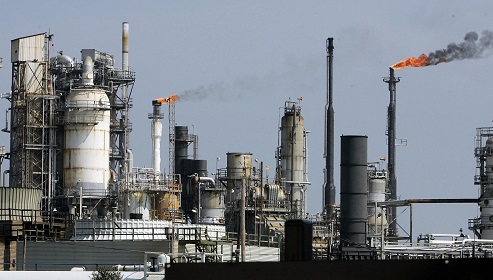
- To provide quality technical education in the field of Petroleum Refinery and Petrochemical Engineering Processes.
- To create technocrats as per the rapidly changing needs of the petroleum industries.
- To develop versatile personalities with sound academics and entrepreneurial skills.
- To inculcate moral and ethical values in students.
- To develop inclusive, collaborative, and responsible citizens for lifelong learning and research.
Program Educational Objectives
- Successful in their careers in the diversified sectors of Petrochemical Technology.
- Be able to implement their acquired knowledge in fields such as advanced Petrochemical engineering and associated downstream processing techniques.
- Be able to understand the recent developments in the field of Petrochemical technology with an advanced focus on research and development and pursue their research goals.
- Faculty development through STTP, Seminars, Workshops, National Conferences, and Guest -Lectures of Prominent Personalities.
- To cultivate a positive attitude in students.
About the Department of Petrochemical Technology
India is marching ahead towards self-reliance in Mineral Oil and Natural Gas sector with tremendous expansion. Considering the role and importance of the Mineral Oil and Natural Gas sector in this era of rapid industrialization and competition, this Department was established in 1972. The Department is running B. Tech and M. Tech programs.
Petrochemical Technology is a specialized branch of Chemical engineering that deals with the operation of Refining and Petrochemical Technology. The term Petrochemical refers to the organic
chemicals which are obtained directly or indirectly from crude petroleum. It is the downstream sector of petroleum consisting of activities such as the refining, marketing, and distribution of petroleum products.
The core subjects of Petrochemical Technology are Reaction Engineering, Heat Transfer, Mass transfer, Fluid Dynamics, Thermodynamics, Transport phenomena, Multicomponent Distillation, and Catalysis.
The major Indian companies in this sector are HPCL, BPCL, IOC, Reliance industries limited, Gas Authority of India Limited, Indian Petrochemical Corporation Limited, and Essor Oil.
In the present scenario, the scope of the petrochemical industry is very good as the government regulations are aligned with the industry and are playing an important part. The regulations have opened the market which is full of scope for the rapid growth of the industry and in turn, the growth of the economy.
Dr. G. M. Deshmukh (Professor and Head)
Dr. V. N. Ganvir (Associate Professor)
Dr. A. J. Agrawal (Assistant Professor)
State-of-the-Art Facilities Available
Well-equipped laboratories for the testing and analysis of petroleum products, specifically kerosene, gasoline (petrol), diesel, lube oils, bitumen, grease, etc. Latest apparatus for the testing and analysis of properties like ASTM distillation, flash point (Cleaveland Open cup, Abel & Pensky Martin Methods), Viscosity, Smoke point, Acid Value, etc.
Services offered to the industry
The department offers services for the testing and analysis of samples from the local petroleum and petrochemical industries. The testing services provided are according to the national standards and are accepted widely
Programme Outcomes (PO)
Program Outcome describes the knowledge, skills, and attitudes the students should have at the end of a four-year engineering program. Engineering Graduates will be able to:
- Engineering knowledge: Apply the knowledge of mathematics, science, engineering fundamentals, and an engineering specialization to the solution of complex engineering problems.
- Problem analysis: Identify, formulate, review research literature, and analyze complex engineering problems reaching substantiated conclusions using the first principles of mathematics, natural sciences, and engineering sciences.
- Design/development of solutions: Design solutions for complex engineering problems and design system components or processes that meet the specified needs with appropriate consideration for public health and safety, and cultural, societal, and environmental considerations.
- Conduct investigations of complex problems: Use research-based knowledge and research methods including design of experiments, analysis and interpretation of data, and synthesis of the information to provide valid conclusions.
- Modern tool usage: Create, select, and apply appropriate techniques, resources, and modern engineering and IT tools including prediction and modeling to complex engineering activities with an understanding of the limitations.
- The engineer and society: Apply to reason informed by contextual knowledge to assess societal, health, safety, legal and cultural issues and the consequent responsibilities relevant to the professional engineering practice.
- Environment and sustainability: Understand the impact of professional engineering solutions in societal and environmental contexts, and demonstrate the knowledge of, and need for sustainable development.
- Ethics: Apply ethical principles and commit to professional ethics and responsibilities and norms of the engineering practice.
- Individual and team work: Function effectively as an individual, and as a member or leader in diverse teams, and in multidisciplinary settings.
- Communication: Communicate effectively on complex engineering activities with the engineering community and with society at large, such as being able to comprehend and write effective reports and design documentation, make effective presentations, and give and receive clear instructions.
- Project management and finance: Demonstrate knowledge and understanding of the engineering and management principles and apply these to one’s own work, as a member and leader in a team, to manage projects and in multidisciplinary environments.
- Life-long learning: Recognize the need for, and have the preparation and ability to engage in independent and life-long learning in the broadest context of technological change.
Programme Specific Outcomes (PO)
These are statements that describe what the graduates of a specific engineering program should be able to do.
- Demonstrate an understanding of the basic concepts, terminology, and principles of Petrochemical/Chemical Engineering and apply it in problem-solving scenarios through hands-on experiences.
- Design a unit operation and unit process to solve engineering problems using basic engineering principles and methods and to exhibit proficiency in applying technology to Industry, Society, and Environmental problems.
- Demonstrate the ability to work effectively as part of a team and practice professional behavior and ethics.
